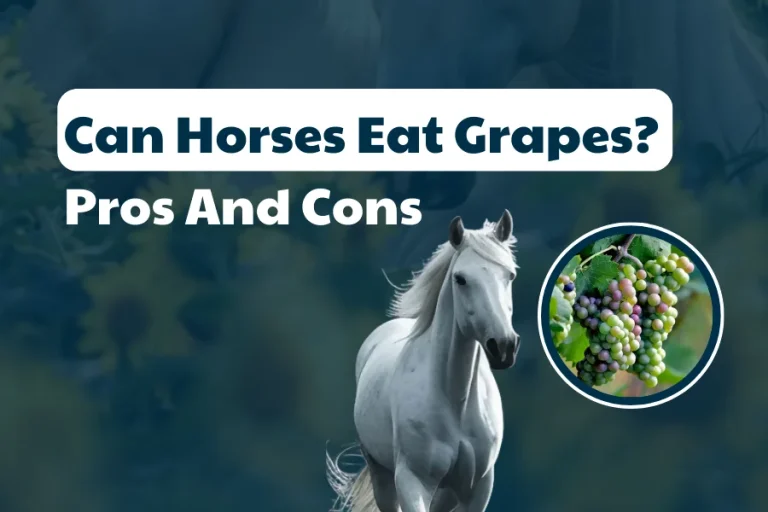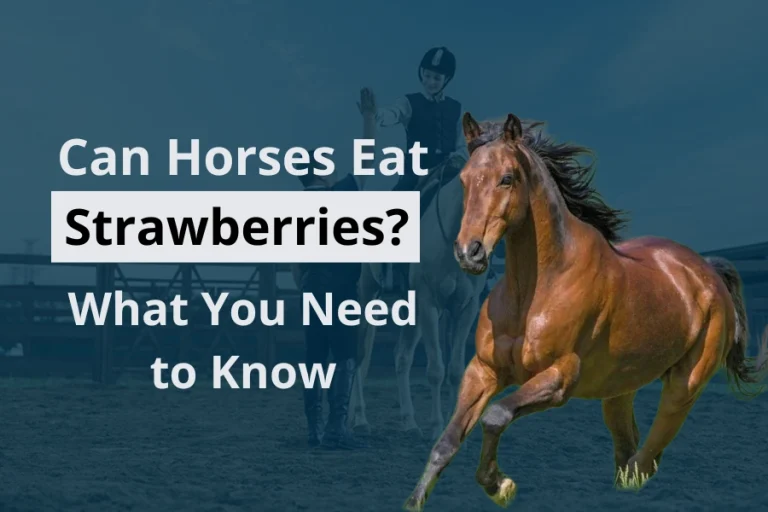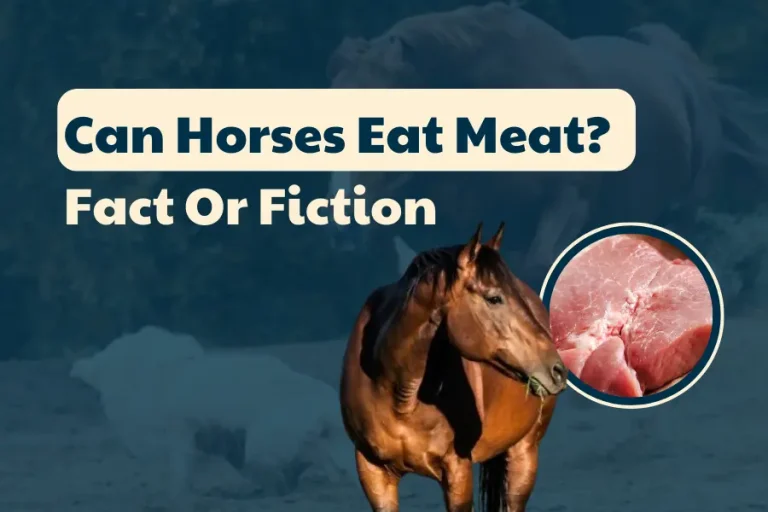Can Horses Eat Oranges? Best Guide for Horse Owners
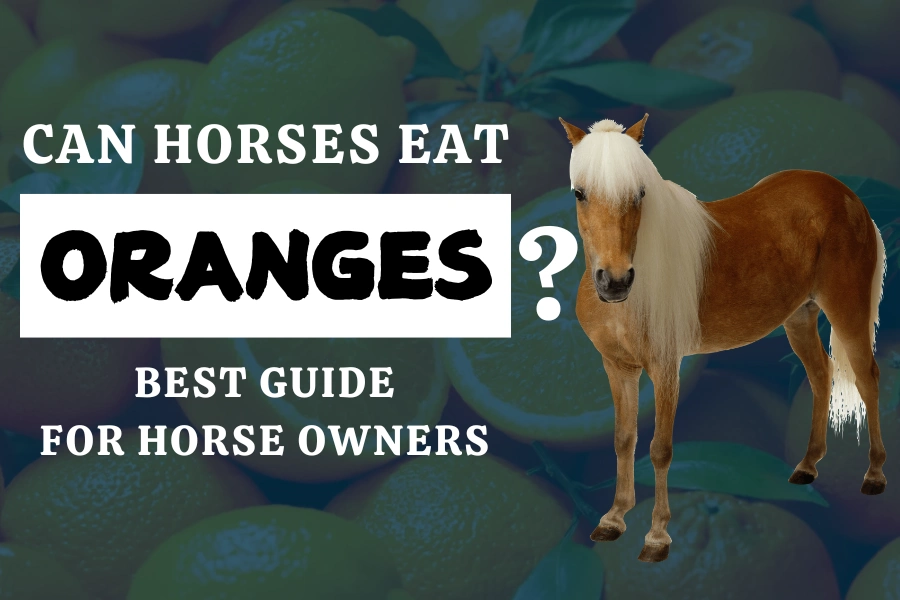
Oranges are delicious fruits and bring many health benefits to humans. But is it safe for your horses to eat those citrus delight treats? If you have beautiful horses and want to feed them with some fresh oranges but still worry, then this article is for you.
In this article: “Can Horses Eat Oranges? Best Guide for Horse Owners”. Let’s find out the nutritional benefits, how to feed oranges to horses as well as some great alternatives of oranges that your four-legged friends may like to eat. You also learn how many oranges you should feed your beautiful horses in a day to ensure to give them good and balanced nutrition.
Can Horses Eat Oranges?
“Can horses eat oranges?” – Yes, horses may eat oranges. This type of citrus fruit is high in many vitamins, especially vitamin C, and could be a healthy snack for your horse. But due to the high levels of acid present in oranges, only feed them sparingly so as to avoid stomach problems.
Is It Safe For Horses To Eat Orange Peels?
Can horses eat oranges with peels? Horses can safely consume orange peels but some equines might find it too disgusting and decline to eat them. Moreover, when you get the oranges ensure that you wash them properly to eliminate pesticides or other toxins on their surfaces.
Can Horses Drink Orange Juice?
No, horses should not take orange juice. The juice doesn’t have enough fiber but has plenty of sugar and acid thus increasing the chances of colic in equines, unlike fresh oranges which are good for their digestive system. An excessive amount of sugar has been linked to obesity and worsens certain conditions such as laminitis.
Health Benefits Of Eating Oranges For Horses
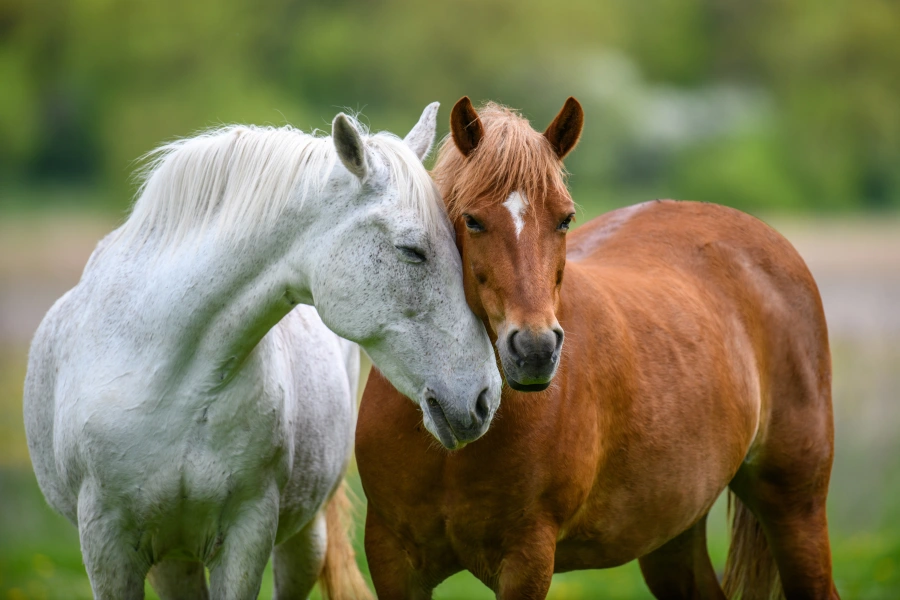
You have got your answer to the question: “Can horses eat oranges?”. Oranges can be quite a healthy and refreshing snack for horses in moderation. They offer several health benefits for horses by providing vitamins and minerals. Here are the reasons why you shouldn’t skip oranges in the diet of a horse:
- Rich in Vitamin C: The horse can be given vitamin C by using oranges that have this vitamin to boost its immunity.
- Rich in Fiber: Oranges contain a lot of fiber which makes them easy to digest and keeps the gastrointestinal tract healthy. Fiber prevents constipation, a highly significant condition for all horses. It also helps in the prevention of colic, one of the most prevalent digestive disorders in horses.
- Hydration: Water constitutes 86% of an orange. Consequently, feeding oranges will enhance the hydration needs of a horse throughout the day. Horses including ones with high activity rates or facing hot weather should eat oranges as snacks for hydration purposes.
- Antioxidants: Oranges are rich in two types of popular antioxidants, flavonoids, and beta-carotene, which help horses fight oxidative stress and inflammation. These may contribute to the overall health of a horse thereby preventing some illnesses.
- Palatability: Many horses like the sweet and sour taste produced by an orange fruit. In addition to being picky eaters, giving them occasional treats made up of oranges is useful in encouraging their eating habits.
- Natural Sugars: To provide your horse with a sugar “rush” feeding it oranges would be perfect. However, you should consider limited quantities so too much sugar is not introduced into the body.
How To Safely Feed Oranges To Horses
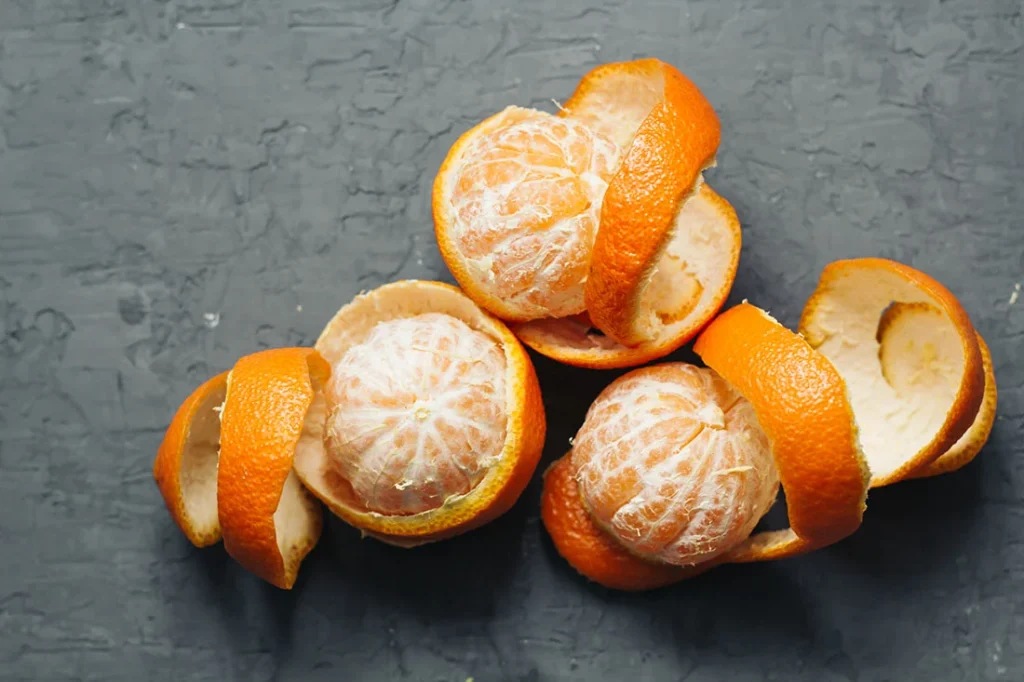
This is quite an easy task. Below is a step-by-step instructions on how to feed your horses in the right way:
- Pick Up Fresh Oranges: Ripe and fresh oranges are your best choices. Don’t take those that are too soft or have mold.
- Wash Oranges: This will help to get rid of dirt, chemical residues, and harmful bacteria.
- Peel & Remove Seeds: If your horses don’t like to eat the peel of orange, then you need to remove it. Don’t forget to take out all the seeds to avoid any choking hazards.
- Cut Oranges into Small Pieces: Manageable pieces of orange allow you to feed the horses easily. Moreover, this will also prevent them from choking as well as better for digestion.
If this is the first time you introduce oranges to your horses, remember to feed them gradually. Then you need to track how the horses react to the new foods and stop feeding if you notice any sign of digestive discomfort.
How Many Oranges Should You Feed A Horse In A Day?
We all know that oranges are very beneficial for horse’s health, but it doesn’t mean that you can feed them a lot. 2 oranges in a week will be enough for your horses. Eating too many oranges can get horses in trouble with the digestive system.
When To Avoid Feed A Horse With Oranges
Can horses eat oranges always? Not every horse can find benefits from eating oranges. You should take out the oranges from the horse’s menu if they are facing one of the below problems:
- The metabolic issues in horses will get worse if consuming high-sugar foods like oranges.
- Horses with sensitive teeth, gum, and any other related dental issues.
- Horses having problems with their digestive systems also need to avoid eating oranges. The high acidity in oranges and other citrus fruits can cause diarrhea or gastric upset.
- Horses that can easily suffer from laminitis shouldn’t have orange in their diet. The high fructose in this kind of fruit can exacerbate the condition.
Alternatives of Oranges – Can Horses Eat Oranges
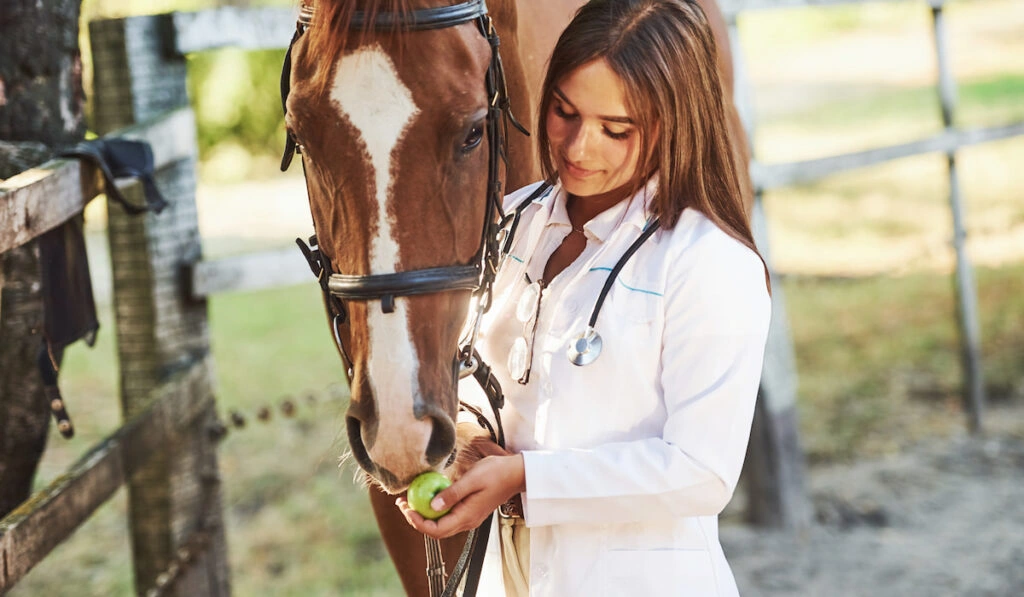
Here are some sweet and sour fruits that would refresh your horse with similar benefits as oranges have:
Apples
Apples are among the most commonly used treats in horse rations, offering some sweetness with a little sourness. They are a good source of both vitamins A and C and contain a bit of fiber. Always remove the seeds and core before giving them to your horse.
Strawberries
This kind of berry fruit is full of both antioxidants and vitamins, along with a good supply of fiber. Strawberries can be given fresh and washed well to ensure no pesticides are present.
Pears
Pears are juicy, sweet, and slightly sour like apples but have a softer consistency. They also contain high amounts of fiber and vitamins particularly vitamin C. Remove seeds and core before feeding to a horse.
Grapes
Small, sweet, and a little bit tart – grapes fit the bill as the perfect bite-sized treat for horses. Grapes are packed with antioxidants as well as many different vitamins. Always ensure they are washed properly before being offered to your horse.
Pineapple
Horses can consume pineapple because it is another sweet and tangy fruit. This is one fruit that contains lots of vitamin C, bromelain—a digestive enzyme. It should be given in small quantities without its hard outer skin.
Kiwi
They taste sweet and tangy; they are rich in dietary fibers alongside vitamins C and K. Do not let the skin remain on when you feed your horse with kiwi.
Tangerines
This kind of fruit is similar to oranges but less acidic and less sugar. Its flavor is also great to feed your horses instead of oranges.
When feeding horses with oranges, always remember to give them in moderation. Fruits are healthy foods that can provide nutrition and taste delicious to horses as well.
Yummy Treats With Oranges For Horses
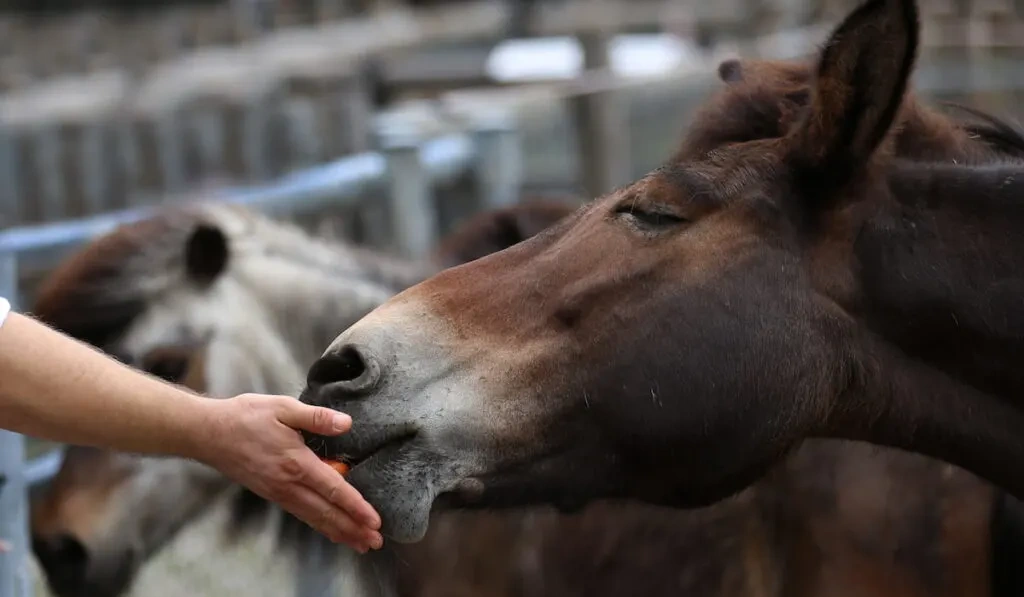
There are many ways for you to turn simple oranges into delicious treats for your horses. Now, it’s the time for a mix-up game to make some delightful snacks for horses:
- Frozen Oranges: Mix some apple or carrot juice with pureed oranges (be sure to peel them). Then pour them into ice trays and let them freeze.
- Orange Oat Cookies: Chop the oranges into small pieces. Then mix them with crushed oats, molasses (or honey), and a spoon of flaxseed. Put the mixture in cookie shapes and bake them until they become golden and crispy.
- Orange & Carrot Snacks: Chopped oranges, oat flour, molasses, and grated carrots – mix all well and shape them into small balls. Bake them at low temp until they get firm and smell good.
- Fresh Salad of Fruits: Mix those delicious orange segments with other favorite fruits of your horse, such as bananas, pears, or apples. Don’t forget to cut the fruits into proper sizes before making this refreshing salad.
Final Words
“Can horses eat oranges?” – Although oranges are a delicious and refreshing treat for horses, core hay and grain should be the main choice in their diet. You can consider consulting with your veterinarian to get advice regarding your horse’s nutritional needs, especially if they have some health issues.

